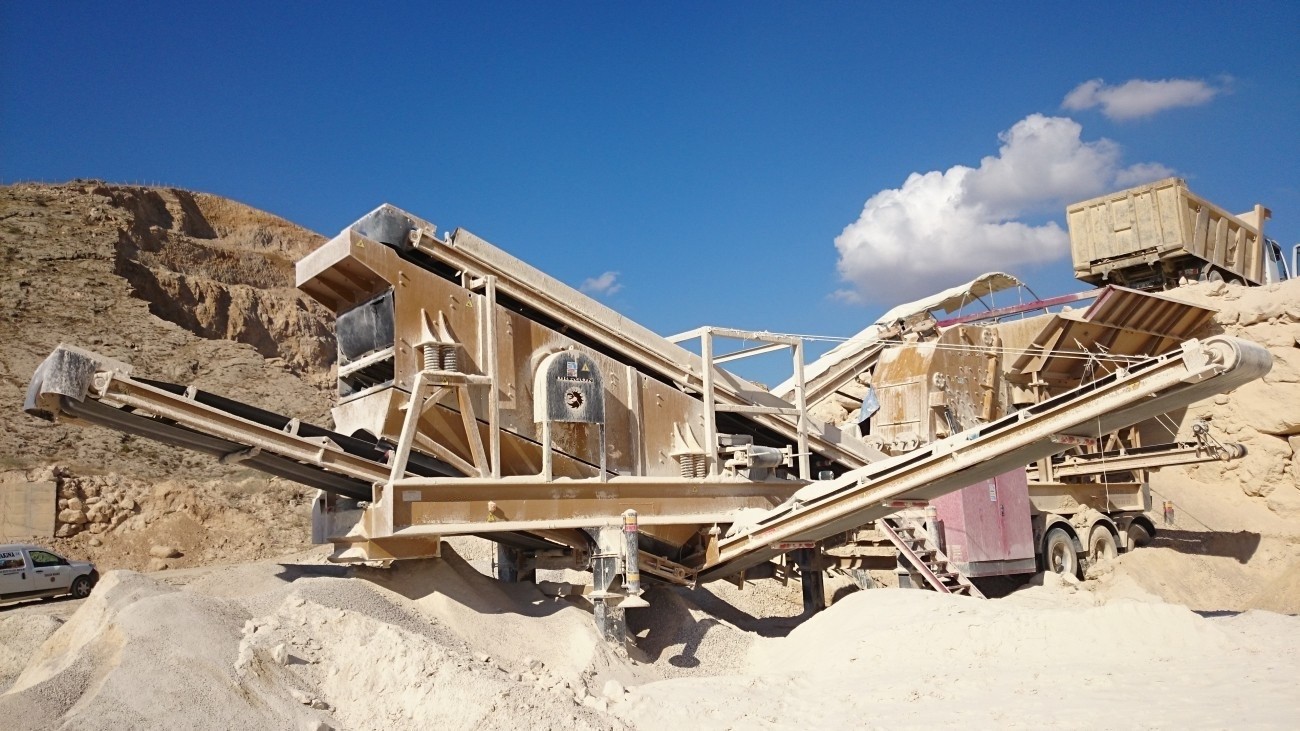Mobile crushing and screening plants are compact, flexible systems designed to process natural stones, ores, and recycled materials into usable aggregate. With a capacity ranging between 100 and 150 tons per hour (TPH), these mobile units are ideal for medium-scale operations and construction projects. Their key strengths include flexibility, efficiency, cost-effectiveness, and ease of transport.
🔧 Technical Specifications:
While configurations may vary by manufacturer, typical 100-150 TPH mobile crushing and screening plants consist of:
-
Feeding hopper: Ensures continuous and uniform feed to the crusher.
-
Primary crusher (Jaw Crusher): Breaks down large stones in the first stage.
-
Secondary or tertiary crusher (Impact or Cone Crusher): Further reduces material size.
-
Vibrating screen: Sorts crushed material into different grain sizes.
-
Conveyor belts: Transfer materials between components.
-
Control panel: Enables remote monitoring and automation.
-
Power unit: Diesel generator or electric motor depending on site requirements.
🛠️ Material Compatibility:
These machines are capable of processing:
-
Basalt
-
Granite
-
Limestone
-
Dolomite
-
Marble waste
-
Recycled concrete and demolition waste
📈 Application Areas:
-
Road construction and maintenance
-
Mining operations
-
Infrastructure development
-
Urban renewal and demolition
-
Quarries and gravel pits
✅ Key Advantages:
-
Mobility: Trailer- or track-mounted units can be relocated in hours.
-
Cost-effectiveness: Lower initial investment than stationary plants.
-
Quick deployment: Start production within a day of site arrival.
-
Environmental compliance: Dust suppression and low emissions.
-
High productivity: Can yield 1000 to 1500 tons per day.
📌 What to Consider in Listings:
-
Year of manufacture and brand: Reliable manufacturers ensure durability and support.
-
Condition and service history: Ask for detailed maintenance records.
-
Spare parts availability: Ensure local access to replacement parts.
-
Installation and transport services: Verify what's included in the offer.
-
Cost vs. capability: Always balance price with expected performance.
 English
English
 Le français
Le français
 Türkçe
Türkçe

